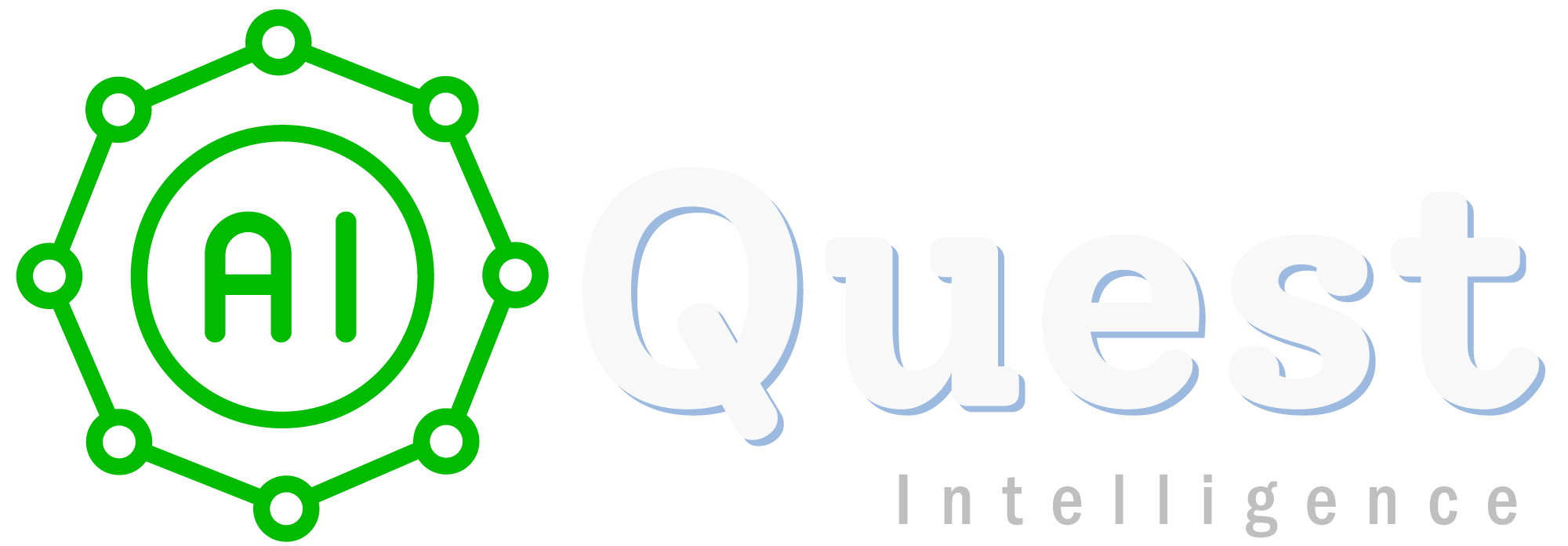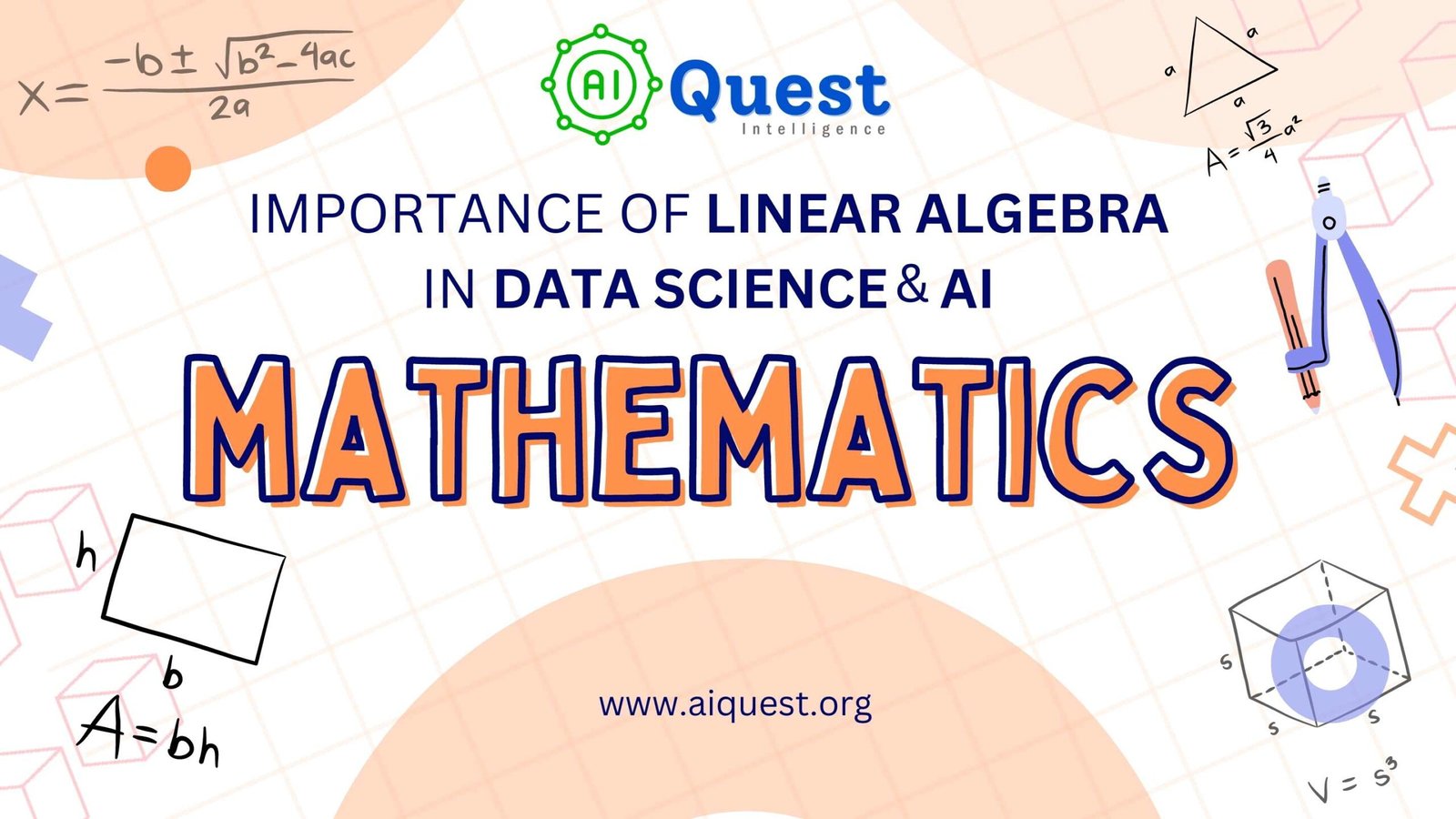- What is Linear Algebra in Mathematics?
Linear algebra is a branch of mathematics that focuses on the study of vectors, vector spaces, and linear transformations. It deals with mathematical structures and operations involving linear equations, matrices, and their properties.
At its core, linear algebra provides a framework for representing and solving systems of linear equations. It involves manipulating vectors (which represent quantities with both magnitude and direction) and matrices (which organize and store data in a structured manner) using various mathematical operations.
- The key concepts in linear algebra include:
1. Vectors: Vectors are mathematical objects that represent quantities with both magnitude and direction. They can be visualized as arrows in n-dimensional space. Vectors can be added, subtracted, scaled, and transformed using operations like dot product and cross product.
2. Matrices: Matrices are rectangular arrays of numbers arranged in rows and columns. They are used to represent linear transformations, systems of linear equations, and data sets. Matrices can be added, subtracted, multiplied, and transposed, and they have properties such as determinants and inverses.
3. Systems of Linear Equations: Linear algebra provides methods for solving systems of linear equations. These systems involve multiple linear equations with multiple variables, and their solutions represent the values that satisfy all the equations simultaneously.
4. Matrix Operations: Linear algebra involves various matrix operations, such as matrix addition, matrix multiplication, and matrix inverses. These operations are fundamental in performing computations, transforming data, and solving linear systems.
5. Eigenvectors and Eigenvalues: Eigenvectors and eigenvalues are important concepts in linear algebra. Eigenvectors represent directions along which a linear transformation only scales the vector without changing its direction. Eigenvalues correspond to the scaling factors associated with the eigenvectors and provide insights into the behavior of linear transformations.
6. Vector Spaces and Subspaces: Vector spaces are sets of vectors that satisfy certain properties, such as closure under addition and scalar multiplication. Subspaces are subsets of vector spaces that themselves form vector spaces. These concepts provide a framework for understanding the properties and structure of vectors and matrices.
Linear algebra serves as a foundational tool in various fields, including physics, engineering, computer science, and, importantly, data science. Its principles are utilized extensively in data manipulation, feature engineering, optimization, machine learning algorithms, and deep learning architectures.
- The Importance of Linear Algebra in Data Science, Machine Learning, and Deep Learning Optimization:
Linear algebra serves as the backbone of many advanced mathematical concepts and techniques employed in data science, machine learning, and deep learning optimization. Understanding linear algebra is essential for aspiring data scientists, as it provides a solid foundation for comprehending complex algorithms and models used in these fields. In this article, we will explore the importance of linear algebra and provide a roadmap and resources to help you learn linear algebra for data science in-depth.
1. Linear Algebra in Data Science:
Linear algebra plays a pivotal role in various aspects of data science, including data manipulation, feature engineering, and dimensionality reduction. It enables data scientists to perform efficient computations on large datasets, uncover patterns, and gain insights. For instance, linear regression, a fundamental machine learning technique, relies heavily on linear algebra to estimate coefficients and make predictions.
Example: Suppose we have a dataset with multiple independent variables and a dependent variable. Using linear algebra, we can formulate the problem as a system of linear equations, where each independent variable contributes to the overall prediction. By solving this system using matrix operations, we can find the best-fit line that minimizes the error between the predicted and actual values.
2. Linear Algebra in Machine Learning:
In machine learning, linear algebra is integral to developing and training models. Concepts like matrix operations, eigen-decomposition, and singular value decomposition (SVD) are utilized to optimize model performance, reduce computational complexity, and interpret feature importance.
Example: Principal Component Analysis (PCA) is a popular technique used for dimensionality reduction. It leverages linear algebra to transform a high-dimensional dataset into a lower-dimensional space while preserving as much information as possible. By performing an eigenvalue decomposition, PCA identifies the principal components that capture the most significant variation in the data.
3. Linear Algebra in Deep Learning Optimization:
Deep learning, a subset of machine learning, heavily relies on linear algebra for model optimization. Techniques like gradient descent, backpropagation, and convolutional operations rely on linear algebraic concepts to update network parameters, compute gradients, and process input data efficiently.
Example: Convolutional Neural Networks (CNNs), widely used in image recognition, employ linear algebraic operations like matrix multiplication and convolution. By applying convolutional filters, CNNs can efficiently process images, extract spatial features, and learn hierarchical representations, ultimately improving accuracy and performance.
- Roadmap to Learning Linear Algebra for Data Science:
1. Fundamentals of Linear Algebra:
– Vectors, matrices, and basic operations (addition, subtraction, scalar multiplication)
– Matrix multiplication and its properties
– Systems of linear equations and Gaussian elimination
2. Advanced Topics in Linear Algebra:
– Vector spaces and subspaces
– Eigenvalues, eigenvectors, and diagonalization
– Singular Value Decomposition (SVD)
– Orthogonalization and Gram-Schmidt process
3. Linear Algebra for Data Science Applications:
– Linear regression and least squares
– Principal Component Analysis (PCA) and dimensionality reduction
– Optimization techniques and gradient descent
– Neural networks and deep learning
- Resources for Learning Linear Algebra:
– “Introduction to Linear Algebra” by Gilbert Strang (Book in Amazon)
– “Linear Algebra” course on Khan Academy (YouTube Course)
– “Deep Learning Specialization” on Coursera by Andrew Ng
A thorough understanding of linear algebra is crucial for aspiring data scientists to excel in the fields of data science, machine learning, and deep learning optimization. By grasping the fundamental concepts and exploring their practical applications, you can leverage linear algebra to manipulate data, develop robust models, and optimize complex algorithms. Use the provided roadmap and resources to embark on a comprehensive journey into the realm of linear algebra and unlock the full potential of your data science skills. Subscribe! & Follow LinkedIn!
.

